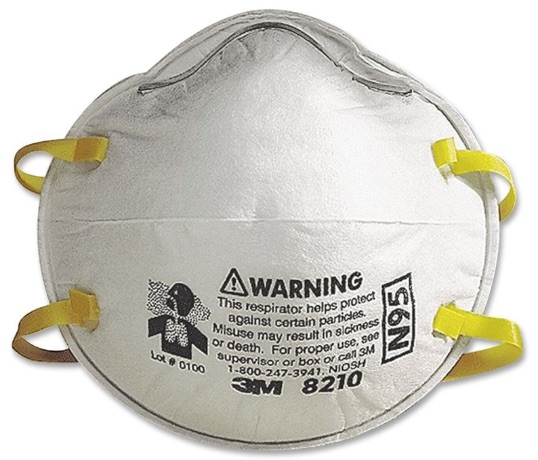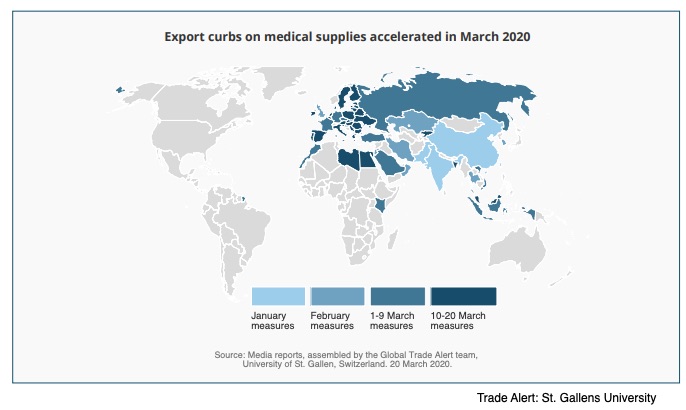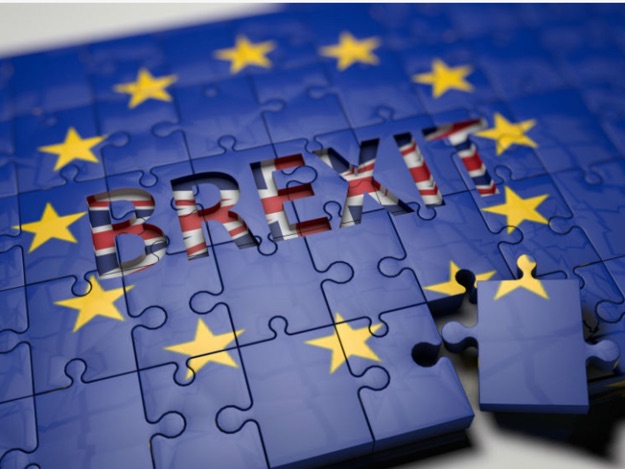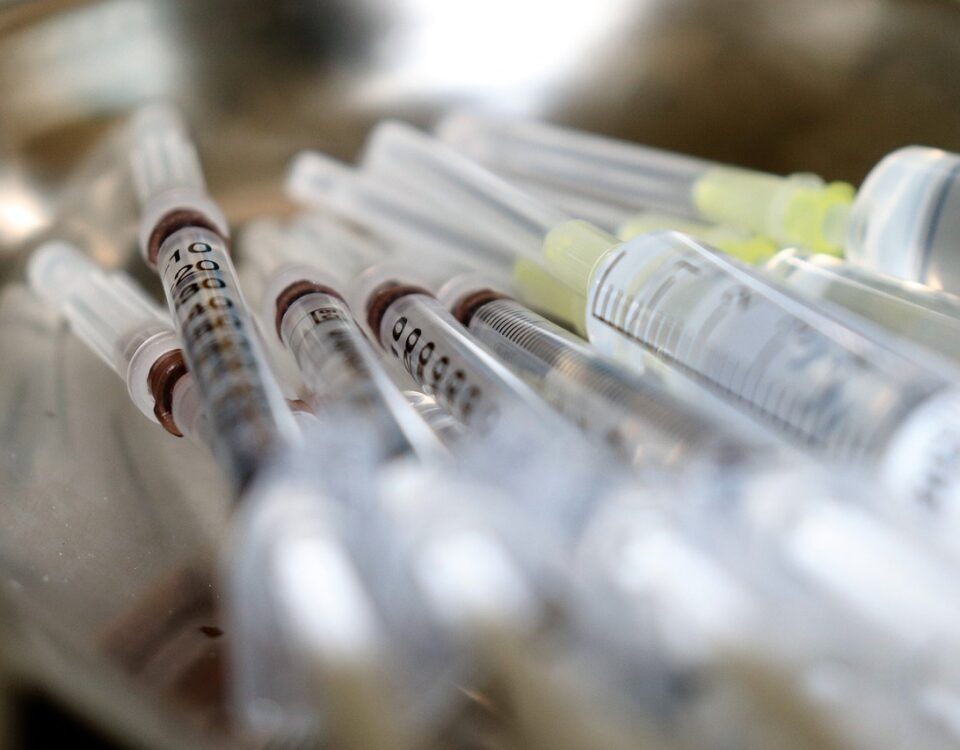
Our Weekly Economic News Roundup: From Less Golf to More Marijuana
March 28, 2020
Past Tariffs and Future Shortages
March 30, 2020In 2018, the medical supplies we need for COVID-19 represented many billions of dollars of world trade:
However, buying what we need for the COVID-19 pandemic has become increasingly difficult.
Medical Equipment Supply
The Restrictions
By March 21st, 54 governments had declared export restrictions. The curbs included bans, government approvals, more stringent licensing rules, and state agencies cornering the market. All are examples of obstacles that block foreign purchases.
When China began buying up its domestic face mask supply. their manufacturers stopped filling foreign orders. On March 3rd, France’s President Macron said he would requisition his country’s face mask production and, several weeks later, border guards temporarily impounded 130,000 face masks heading for the U.K. In Germany, producers need government permission to export respirators.
You can see below that the spread of the coronavirus paralleled the expansion of export curbs:
These were the countries that exported ventilators in 2018:
The Impact
Economists suggest that trade restrictions are counterproductive. The problem is allocation and production. 3M, for example, has said that it is having difficulty sending masks where they are most needed. But, more crucially, restrictions beget more restrictions. We then wind up with a vicious cycle whereby trade curbs create more shortages.
Taking it to an extreme, export restrictions mean that only producers have access to what they produce domestically.
Our Bottom Line: Globalization
Globalization helps to increase our medical equipment supply. Even if restrictions temporarily increase local availability, ultimately, manufacturers have less incentive to ramp up production because their market is limited. Furthermore, the expense of restrictions can be costly for governments that need to allocate limited finances toward fighting the outbreak. Most crucially though, export curbs diminish the cooperation and trust that can help everyone.
And of course, I think of David Ricardo’s comparative advantage. Here, he would surely hope that nations with the lowest opportunity cost produce masks or ventilators. Only then will we optimize the worldwide output that we so badly need.
My sources and more: During my daily walks, while I always enjoy the Peterson Institute’s Trade Talks podcast, this episode on our medical necessities was especially good. But if you want a fast un-gated read, The Economist had a summary from one of the Trade Talks commentators. And finally, for the most detail, I recommend this paper.
Tomorrow, we will consider how tariffs have also affected supply.
![econlifelogotrademarkedwebsitelogo[1]](/wp-content/uploads/2024/05/econlifelogotrademarkedwebsitelogo1.png#100878)







